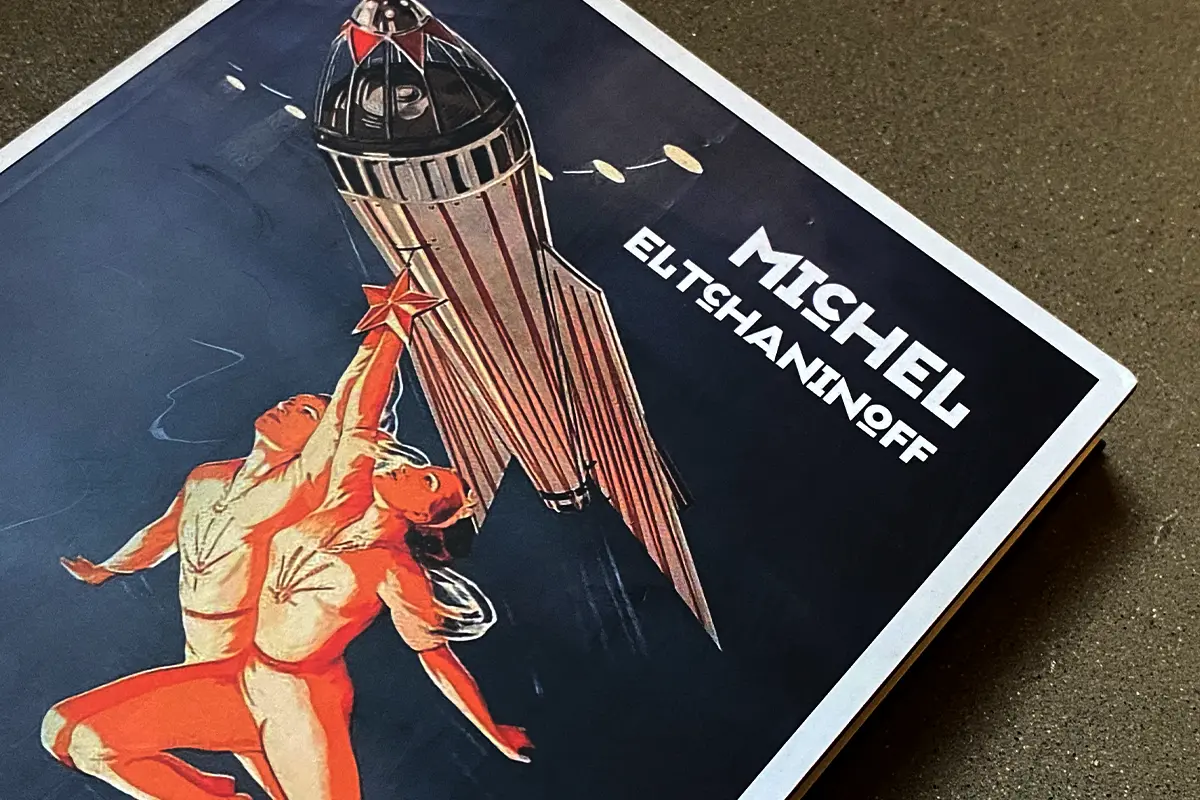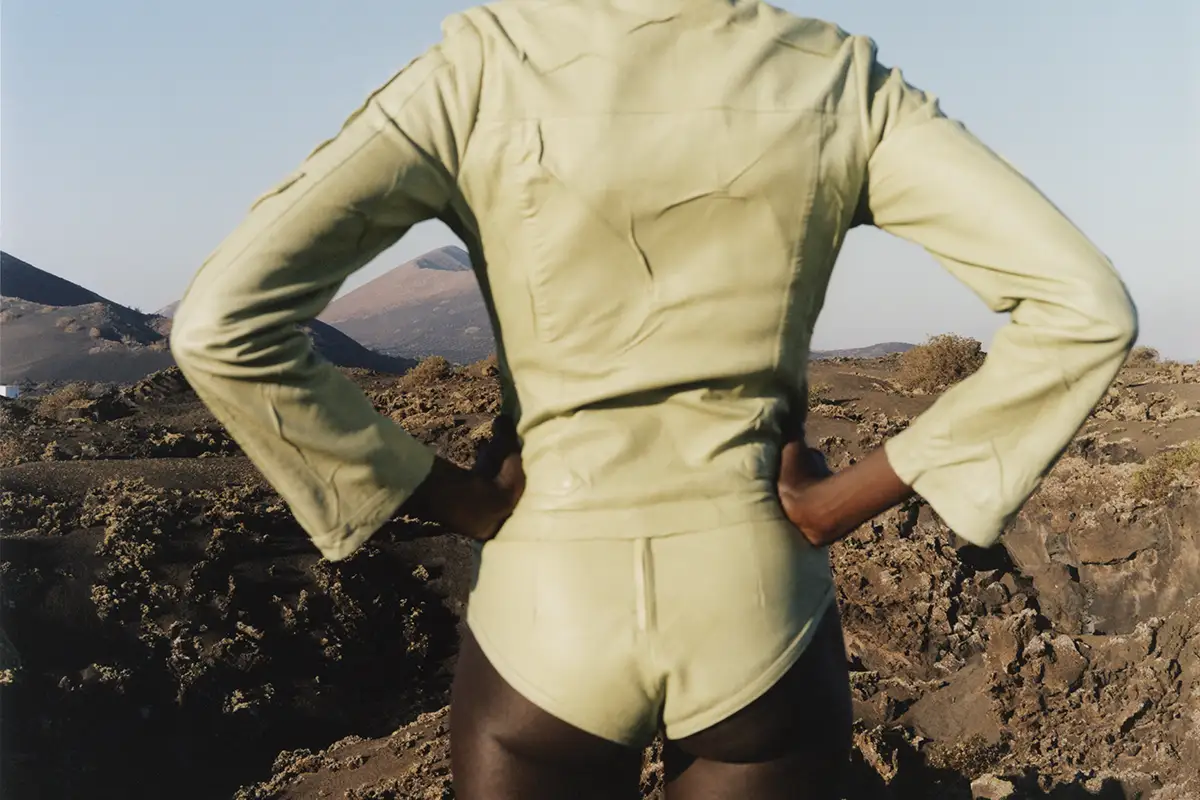Michel Eltchaninoff sits down with Prof. Eleonora Rajneri Karageorgevitch for Lampoon, investigating Putin’s ideological and philosophical foundations of thought
Michel Eltchaninoff and Prof. Eleonora Rajneri Karageorgevitc on ‘Russian-ness’
Michel Eltchaninoff agreed to sit down with Prof. Eleonora Rajneri Karageorgevitch. They discussed a book that entails understanding the reasons for Putin’s criminal policies and invasion of Ukraine. A journey inside the mind of Russia’s new tsar, investigating his ideological and philosophical foundations of thought. Russia under Putin is a strong, feared nation. A Russia that intends to claim its rightful place among the world’s leading powers. It is a worldview rooted in nationalist and pan-Slavicist ideologies, and one that elects as philosophers of ‘Russian-ness’ writers such as Dostoevsky – reinterpreted and distorted to serve as effective support for his political vision.
The autocratic political power of Russia over time
While in Europe, since The Peace of Westphalia, a balance has been created between a number of independent states that control and limit each other, Russia has been characterized by an absolute and autocratic political power that dominates an immense territory. How do you explain that this idea of a single centralized power has been able to endure over time, that its legitimacy has never been questioned despite the vastness of the territory under control and the diversity of the peoples who inhabit it?
Historically, Russia has been built and thought, starting from the Grand Duchy of Moscow at the end of the Middle Ages, in a process of continuous expansion of its territory. The Russian empire, from its official foundation in the 18th century, extended into the Ukraine, the Caucasus and Central Asia. In the 19th century, an official ideology tried to legitimize this movement, in the sense of popular loyalty to the tsar, a dominant confession, Orthodoxy, a shared national-popular principle (in Russian narodnost). This did not prevent resistance. Russian imperial wars were often bloody and difficult. Just think of the resistance of some peoples of the Caucasus, especially under the leadership of Chamil, between 1830 and 1860. Moreover, while the Russian empire was almost completely constituted at the end of the 19th century, voices were raised to affirm that the ‘Russian idea’ could not be satisfied with a purely imperial project. One of the greatest Russian philosophers of that time, the Christian idealist Vladimir Soloviev, criticized, for example, «an absurd pseudo-patriotism which, under the pretext of serving the nation, actually keeps it on the path of national egoism and thus works for its loss». He calls the state and the people to a ‘national renunciation’. To become itself, Russia must stop seeing itself only as imperial.
As for autocracy, its excesses have been fought against since the first half of the 19th century. The Decembrist revolt in 1825, the nihilist youth movements of the 1860s, the ‘populist’ attacks against the emperors in the 1880s, the structuring of the workers’ movement at the beginning of the following century, the various resistance movements of the peoples under attack, were all suppressed. The fact remains that they led to the revolutions of 1917. Only, a new type of autocracy, Bolshevik, was instituted. This persistence of the idea of empire and of the authoritarian principle has never prevented intellectual opposition, political struggles, and resistance. These still exist.
Patriarch Cyril and orthodoxy as the spiritual cement of the Russian autocracy
In Europe, starting with Charlesmagne, the political power was legitimized by the Catholic Church. This alliance between the pope and the rulers, however, was dissolved during the Enlightenment.
What is the role played by religion in the affirmation of the Russian central power and what is the role of religion today in the post-Soviet Russia of Vladimir Putin?
Orthodoxy served, like other faiths in Europe, as the spiritual cement of the Russian autocracy. But, again, at the cost of various struggles. The reformer Emperor Peter the Great, for example, abolished the Moscow Patriarchate and replaced it with a Synod at the behest of the civil power. In the eighteenth and nineteenth centuries, the Orthodox faith was often despised by the political elites. The Bolsheviks established official atheism, destroyed churches and sent priests to the camps. This did not prevent them from establishing a new religion, a socialist one, with its saints – whose relics, like those of Lenin, were venerated – its rituals, its sacred texts and its heretics. Vladimir Putin, for his part, has relied on the Orthodox Patriarchate of Moscow to try to consolidate Russia’s ‘moral values’, which he readily opposes to the alleged decadence of the West. He has relied on his hierarchy to criticize gay marriage and defend what he calls the ‘traditional family’. Patriarch Cyril, the ideological arm of Putinism, recently said that the invasion of Ukraine was a kind of holy war and, as he put it, ‘metaphysical’.
Moscow as the ‘third Rome’
You talked about a ‘messianic’ spirit that underlies Russian expansionism. Can you explain it to us?
Russian leaders have often justified their imperialism on religious grounds. As early as the 16th century, Moscow presented itself as the ‘third Rome’, after Rome and Constantinople, and thus as the new spiritual pole of the Western world. This idea resurfaced in the 19th century, accompanied by a feeling of hatred towards a West considered to be sclerotic, bogged down in technical and scientific progress and capitalism, having lost all religiosity. Some so-called Slavophile thinkers consider that Russia’s historical mission is to save the West from its secularization, to show it the way to a renaissance. Despite the atheism of the so-called scientific socialism of the Bolshevik leaders, this messianic spirit never disappeared. The Soviets considered that they were proposing to the whole world a new and definitive way of development – communism -, that they were the first to conquer space, in short, that they embodied the future of humanity.
With his rhetoric of the war of civilizations, leading up to his invasion of Ukraine, Vladimir Putin is taking on some of these messianic elements. Saying he is ready to use nuclear weapons, he considers that he is leading the final struggle against Western forces. By reactivating the imaginary of the Soviet struggle against the Nazis (since he wants to impose the image of a neo-Nazi Ukrainian power, which is totally false), he invents a neo-messianism that draws its sources from both Russia’s religious past and its Soviet conquests. And he is ready to go all the way.
The Soviet leaders, Marxism and Yuri Gagarin
You have recently published a book entitled Lenin a marché sur la lune (published in Italy as Lenin ha camminato sulla luna, 2022, ed. e/o) in which you explain the thought of Russian cosmists and transhumanists, which is, as you say, the result of a special relationship between man and space (in the geographical sense). How is this thought still present today, inside the mind of Vladimir Putin (which is the title of the book you published in 2015 in French, then translated also in Italian as Nella testa di Valdimir Putin, 2022 ed. e/o).
Russian cosmism is a modern variant of Russian messianism. From the end of the 19th century, its representatives considered that the Russians, relying both on their religiosity and on the progress of science and technology, should be able to resurrect the dead, make man live forever, and conquer space to populate it. Against all odds, this nebula survives the Russian revolution. The Soviet leaders, Marxists though they were, created a kind of new religion intended to free men from their ultimate alienations. Lenin, in his mausoleum, is the proof that a man can remain immortal. The flight of Yuri Gagarin into space in 1961 is the continuation of this dream. This cosmic ideal was welcomed in Russia partly because of the vastness of its territory, which creates a special relationship with space. Willingly nomads in the interminable steppes, the Russians perhaps saw in the cosmist flight an aspiration close to their vision of space.
The Russian regime of Vladimir Putin against NATO and empire nostalgia
Russia is the largest country in the world. Its territory goes from the West to the East and its culture swings between the West and the East without being really at ease neither on one side nor on the other. However, it has a vocation to go towards the West which is demonstrated by the adoption of the Christian religion and by the fact that the language of the elite has been for a long time the French language, as noted by Henry Kissinger in L’ordre du Monde (ref). Emmanuel Macron, in his speech to the European Parliament on May 9, revived François Mitterand’s idea of creating a kind of affiliation, a welcoming structure to the European Union (which is not a membership in the proper sense) of neighboring countries in order to avoid a feeling of hostility towards us. Do you think that if Europe had not rejected Russia with distrust, the Russian people would have been able to build another, more open and liberal political system (the same question arises for Turkey for example)?
Europe has never rejected Russia. After the fall of Soviet totalitarianism, Russia was welcomed into various important international structures (such as the G8 or the World Trade Organization). If the Russian regime has turned towards authoritarianism, with Vladimir Putin, it is for internal reasons: the desire for stability among citizens after the socially very difficult 1990s, nostalgia for Soviet power, the desire of former republics and their peoples to turn more towards the West than towards the former ‘big brother’ in Moscow… After a few years of wait-and-see attitude, Vladimir Putin has oriented Russian opinion towards a project of revenge against a West accused of all the wrongs: of having favored the fall of the USSR, of having organized the independence of former republics, etc. He has set his country on the path of revenge fantasies instead of trying to establish peaceful relations with the former enemy of the Soviet bloc. Today, he is attacking his Ukrainian neighbor in the name of this dream of imperial restoration. At the risk of permanently isolating his country, impoverishing his population, and strengthening NATO. Even if we do not know the end of the story, Vladimir Putin, who is at the origin of a war that causes the death of tens of thousands of people, may have been the gravedigger of his own dreams of revenge.
Eleonora Rajneri Karageorgevitch
Professor of Private Law at the University of Eastern Piedmont and visiting Professor in private comparative Law at Université Paris-Dauphine since 2018, member of the expert group on Product Liability and new Technologies at the European Commission, author of several studies published in international legal Journals.
Michel Eltchaninoff
Born in France to a family of Russian descent, Michel Eltchaninoff is a journalist, essayist and lecturer specializing in Russian philosophy. After teaching at the Sorbonne, he is now editor-in-chief of Philosophie Magazine. In 2016 he founded the association Les Nouveaux Dissidents, which has launched several initiatives, including a campaign to free Ukrainian filmmaker Oleg Sentsov. His books include Dans la tête de Marine Le Pen and In the Head of Vladimir Putin.



















